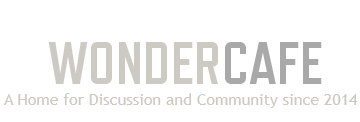ChemGal
One with keen eye
- Pronouns
- She/Her/Her
How much would you be willing to change in your life to manage a health condition?
I feel like I have made some pretty big changes.
I've watched the Frey Life youtube channel on and off. It follows a married couple and Mary has CF. They are (have? I'm not caught up) moving to North Carolina from the Boston area (I don't think they live right in Boston, but believe that's where her medical team is) as she is preparing for possible having a lung & liver transplant and if that happens it will be done at Duke. Instead of having to travel when she's extremely sick they have decided to move there to get set up, settled and getting the professional and non-professional support systems figured out while she is capable of staying at home and getting out of the house. I was a bit surprised to make such a move when coming from a place like Boston, but a big part of it is the rarity of doing the multiple organs and Duke has done the most lung-liver transplants.
I know of people who have refused to self-treat with the IV meds. I know myself I pushed myself too hard too long instead of giving up things I really enjoyed doing or that were important to me but there was a big switch when I went from "I feel super crappy" to "I feel super crappy and the probability of this killing me is way higher than what I thought based on my symptoms".
Are you a whatever it takes to care for myself? Or what's the line? Are there some things you would just refuse to do?
I feel like I have made some pretty big changes.
I've watched the Frey Life youtube channel on and off. It follows a married couple and Mary has CF. They are (have? I'm not caught up) moving to North Carolina from the Boston area (I don't think they live right in Boston, but believe that's where her medical team is) as she is preparing for possible having a lung & liver transplant and if that happens it will be done at Duke. Instead of having to travel when she's extremely sick they have decided to move there to get set up, settled and getting the professional and non-professional support systems figured out while she is capable of staying at home and getting out of the house. I was a bit surprised to make such a move when coming from a place like Boston, but a big part of it is the rarity of doing the multiple organs and Duke has done the most lung-liver transplants.
I know of people who have refused to self-treat with the IV meds. I know myself I pushed myself too hard too long instead of giving up things I really enjoyed doing or that were important to me but there was a big switch when I went from "I feel super crappy" to "I feel super crappy and the probability of this killing me is way higher than what I thought based on my symptoms".
Are you a whatever it takes to care for myself? Or what's the line? Are there some things you would just refuse to do?
